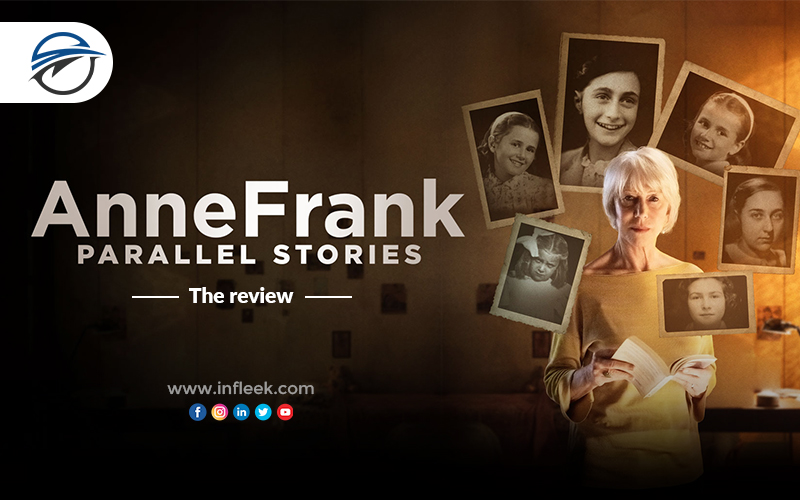Being into the limelight this documentary presented by Netflix shares about Anne Frank and Holocaust survivors. Anne Frank Parallel Stories, a new documentary streaming on Netflix, goes a step further. It revolves the victim of a dreadful historical catastrophe into a hashtag.
History that brings out the story
One of the counts of practice camps in German-occupied Poland during World War II, Auschwitz discerned 1.1 million Jewish inmates perished between 1940 and 1945 when the Soviet army rescued the site. Massive numbers of men, women, and children were carried to the gas chambers, to be killed by toxic fumes. Millions of people were murdered and died in hundreds of such camps across Europe, due to the inhuman conditions they were kept in. Among the latter was a girl called Anne Marie Frank, a 15-year-old, who perished in the typhus epidemic that blew up in the Bergen-Belsen camp in 1945.
Derived from her diary, published by her father
The name of the documentary–Anne Frank was immortalized by the diary that she wrote, found posthumously, and got published by her father, a survivor of the Holocaust, Otto Frank. Since it was released in 1947, The Diary Of A Young Girl has been interpreted into 70 languages and sold approximately 30 million copies. Although Anne was born in Frankfurt in 1929, she lived largely of her short life in Amsterdam and wrote her diary, which was gifted in dutch to her on her 13th birthday.
The documentary captures every age group
From school-going children to adults to old aged people, the readers of Frank’s diary belong to a cross-section of society. The summary of her days is loaded with teenage fun and frustrations, later with fear and suspicion, as she hid with her family in a hidden annex of their house to avoid the Nazis. Despite her cloistered life, Anne Frank was prepared to summon a rare soul of strength and shore up her blossoming scholarly aids to fight off the worsening sorrow of her days. In the two years, she confessed in her diary she speculated of the journal as a friend and called it Kitty…

More about the documentary
The documentary Anne Frank—Parallel Stories has its soul in the perfect place. The documentary has been directed by Sabina Fedeli and Anna Migotto. This popular documentary has been wonderfully narrated by actor Helen Mirren, it aims to commemorate Anne Frank’s spirit and legacy, particularly for people around her age living in the 21st century. And, instead, daringly, it doesn’t restrict itself to confiding Anne Frank’s story alone. Rather, five Holocaust survivors, approximately the same age as Anne Frank would have been remembering she lived, recall their memories of the camps in the movie.
It’s very hard to come out of a death camp, losing your loved ones in front of your eyes and assembling the courage to speak about their stories. The survivors at the camp were Arianna Szörenyi, Helga Weiss, Sarah Lichtsztejn-Montard, and the sisters Andra and Tatiana Bucci explain their stories on camera. Their tales are incorporated with testimonies by their kids and grandchildren, who talk about their difficult inheritance of shock and their complications in processing the misery their parents and grandparents underwent. As one woman tells of her mother, A part of her has persisted in the camp.
While the truth of the camps may seem different and the cruelty of what their forebear survived to seem surreal to the newer generation, fascism is distant from sluggish in the 21st century. With the present surge of populism around the world, dominated by real and/or quasi-dictators, the fear of the camp isn’t simply a historical remark. It remains observable for the millions of stateless refugees, for example, evacuated adrift in the earth, who are threatened into camps with sub-human amenities.
Should have more Powerful Narrative The Parallel Stories by Anne Frank could have dug such significance and analogies to establish a far more influential narrative than it does. The tangling jointly of the five women’s statements with Anne Frank’s biography is uneasy, though, on their own, each of their tales is heart-rending. Mirren’s existence, at once strong and sobering, delivers an anchor to the shaky structure. There are piecemeal undertakings to carry historical evidence into the narrative—for example, in the snippets from Adolf Eichmann’s trial in Jerusalem in the 1960s, and statements by experts. Nonetheless, the periodic interventions can’t quite make up for a stronger scholarly frame that the project appears to fail.

